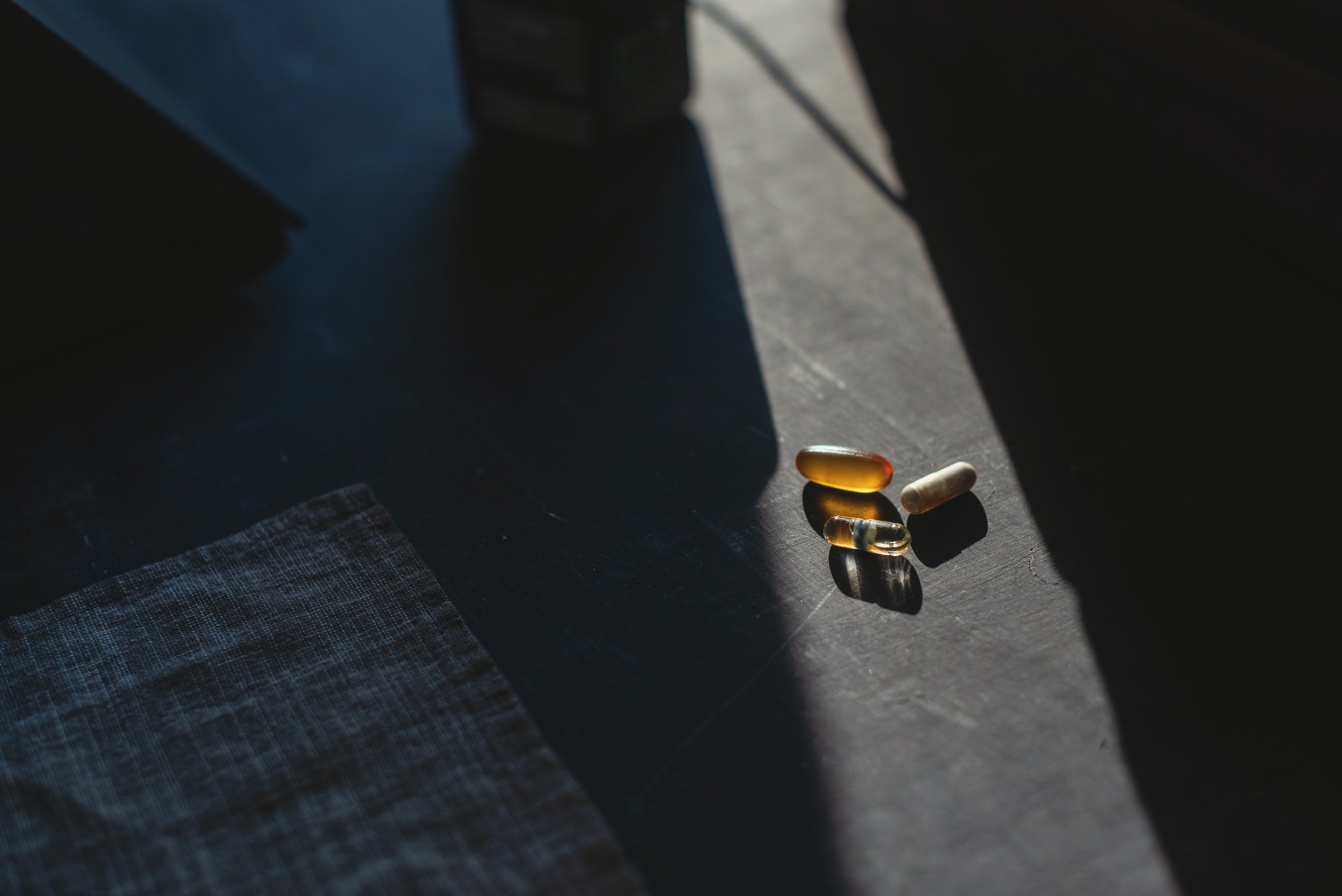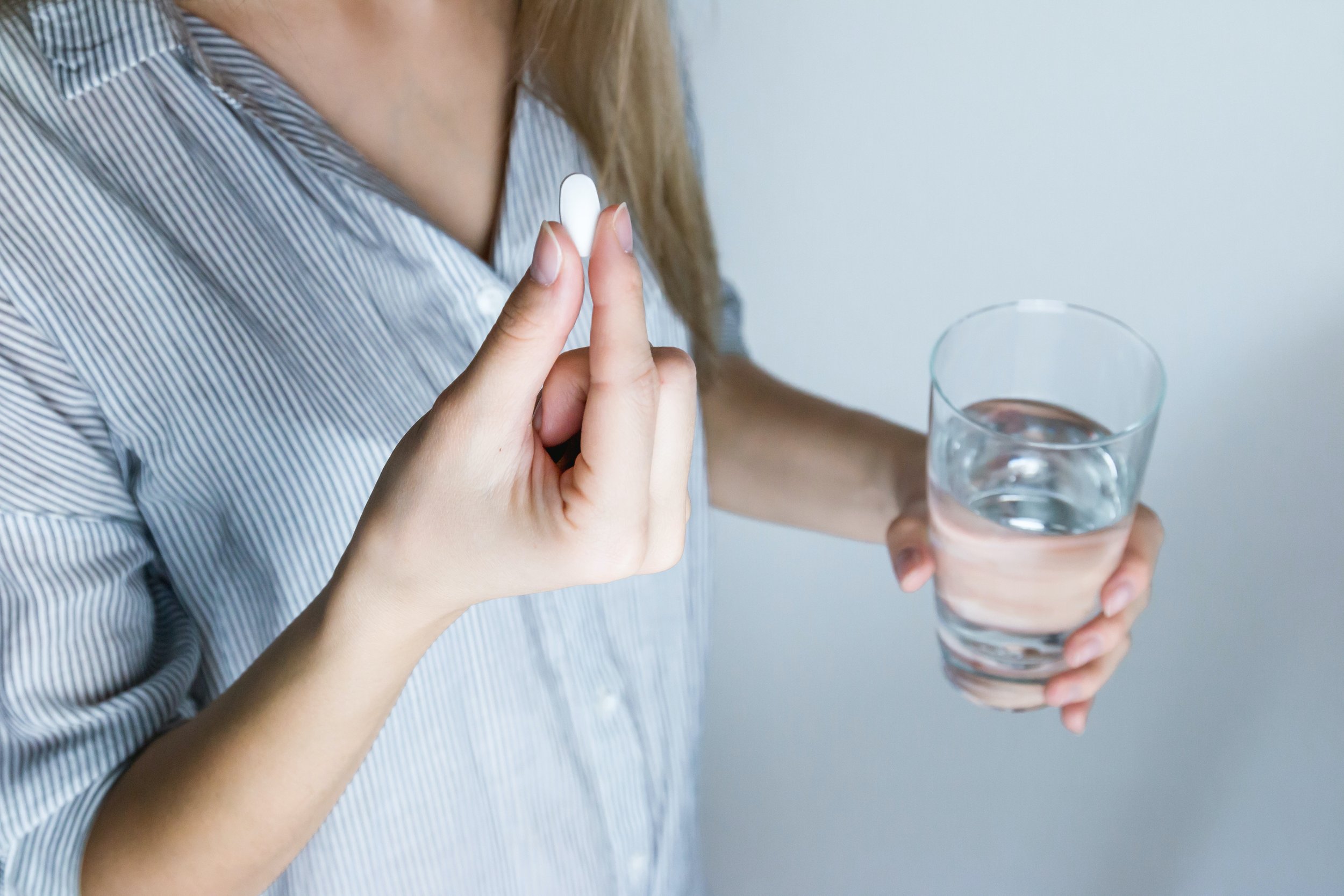Panic and Anxiety Supplements: Which Ones Actually Work?
Updated March 2024
Disclaimer: As an Amazon Associate, I earn from qualifying purchases. I also get commissions from other companies for purchases made through links in this post.
Many individuals suffer from bouts of panic and anxiety. This can be a temporary condition caused by an adverse life event such as losing a loved one, or it can be a more chronic embedded mental state that is harder to treat.
Some people find conventional therapies hard to maintain due to unwanted side effects caused by the drugs used to suppress anxiety and panic disorders, leading patients to experiment with so-called natural supplements instead. Even these come with side effects but to a far lesser degree.
Currently, there are many supplements on the market that claim to be highly beneficial for those who are troubled by panic and anxiety, but do they really work? Or are most of these products a marketing success story rather than a medical victory over the specter of anxiety and panic disorders?
How Can Supplements Benefit Those With Panic and Anxiety Conditions?
Millions of Americans suffer from various anxiety and panic disorders, and these can seriously restrict the lives of those who are affected by them. Whether the causes are events that cannot be controlled or phobias, supplements can help ease or even prevent symptoms from occurring.
Supplements can be taken every day to prevent the onset of anxiety and panic, or they can be used more sparingly during a specific period when sufferers feel more susceptible. This can include certain social situations, job interviews, or even having to face a phobia head-on.
These anti-anxiety and anti-panic supplements aim to make the symptoms more manageable so that they no longer control the sufferer. Some supplements, such as St. John's Wort, work directly on the brain by increasing serotonin levels which can help regulate mood in mild depression sufferers. Others, such as B vitamins, simply address an imbalance or a deficiency, but do they actually improve panic and anxiety symptoms?
Here is a look at some of the market's leading over-the-counter panic and anxiety supplements that have been scientifically studied.
5 OTC Supplements That Actually Help
1. Hops
Hops, also known as Humulus Lupulus, has been used for years as a natural remedy for anxiety and panic. It can be taken internally as a tincture, tea, or with a dried extract that has been prepared in capsule form.
Hops are traditionally used in the brewing process of beer. Still, in capsule, tincture, and tea forms, hops have become a popular over-the-counter remedy for ailments such as stress, anxiety, and insomnia.
Hops capsules can be taken three times a day, which is also the case with tinctures. The tea preparation is best taken at night an hour before bed to aid in restful sleep. Since there is no set dosage for hops products, it is best to stick to the manufacturer's dosage recommendations instead.
Most human scientific trials have not used hops alone; a mix of herbs that are supposed to ease the symptoms of stress, anxiety, and panic disorders was used instead.
However, one study only used hops extract, which was performed on 36 participants. The experiment was conducted to study the effects of hops on medical conditions of the central nervous system. The randomized placebo-controlled double-blind study involved administering two 0.2 gram (g) capsules of hops extract daily every evening to half of the participants and a placebo to the others.
Although there was an improvement in the symptoms related to panic and anxiety disorders in both groups, the positive effects on mental well-being were more noticeable in the group who took the hops extract rather than the placebo over the same time period. Even though more scientific experiments are needed with hops extract and on a larger human scale, it seems that hops have a calming effect on the central nervous system and, therefore, on the mind as well.
Because of the calming effect of hops, possible side effects can include sleepiness, drowsiness, and dizziness.
2. Lemon Balm
Lemon Balm is also called Melissa Officinalis and grows in the Mediterranean and west African regions of the world. The leaves are used in herbal preparations, including teas, tinctures, and powdered extracts in capsule form.
It has been approved by the European Medicines Agency as a treatment for mild mental disorders such as stress and anxiety on the basis of human trials. Lemon Balm contains essential oils and flavonoids, which make up the active ingredients.
Lemon Balm is thought to work by inhibiting an enzyme called GABA-T that breaks down GABA in the brain. This helps to prevent a decrease in the amount of GABA available and aids in the relaxation of the mind.
Whether it is taken in a tea, tincture, or capsule form, it is best to stick to recommended dosage instructions and only increase doses as advised by a medical professional.
Drowsiness is the main side effect of Lemon Balm, and those affected should not drive or operate other machinery.
3. Passiflora
Passiflora incarnata is also commonly known as Maypop or passionflower. It mostly grows in the southeast of America, in Argentina, and in Brazil. Passiflora contains many phytochemicals and flavonoids, which are thought to be behind the plant's anti-anxiety effects. As with Lemon Balm, it is thought that Passiflora helps to regulate the amount of GABA in the brain.
Passiflora can be taken in tincture and capsule form but should not be taken during pregnancy as it can induce labor. Up to 800 milligrams (mg) daily is safe in the short term, but long-term use should be discussed with a herbalist.
4. Magnesium
Magnesium is an essential mineral the body needs to function normally. It is abundant in foods such as almonds, cashews, whole wheat, and spinach. Despite the availability of magnesium in the diet, it can also be found as a supplement in various potencies.
Research has discovered that magnesium supplementation can help alleviate mood disorders both in animals and humans. In addition, it is thought that magnesium can modulate the activity of the adrenal glands, which are part of the body’s stress response system.
Magnesium is mostly available in tablet form, and anything between 125 and 600 mg can be taken a day. Magnesium helps the body cope with stress better and can ease anxiety and panic because of this. Tablets can be taken with or without food.
The possible side effects of exceeding the recommended daily dosage of magnesium include diarrhea and electrolyte imbalances.
5. Omega-3 Fatty Acids
While Omega-3 fats are present in foods such as oily fish and flaxseed, many individuals are still deficient in these health-promoting fats. Such fats cannot be made by the body, so a daily supply is needed through diet or supplementation.
Omega-3 fats are essential for the normal function of the brain. This has been illustrated in a review of 19 clinical studies involving 2240 participants. The results showed that Omega-3 fatty acids, when included in the diet, helped ease the symptoms of anxiety in a clinical setting.
Supplementation is usually with fish oils or flaxseed oil, both as a liquid or in a capsule form. The best Omega-3 supplements contain both EPA and DHA fatty acids, or ALA, which the body can convert to both.
A minimum dose of 200 to 500 mg daily can be taken long-term. Higher therapeutic doses can be taken to treat panic and anxiety. Most side effects are gastrointestinal, including upset stomach, nausea, and heartburn.
5 Supplements That Aren’t Worth the Hype
1. 5-HTP
5-HTP has been marketed as a supplement that increases serotonin levels in the brain and can therefore alleviate the symptoms of depression, anxiety, and panic attacks. There has been very little in the way of clinical trials to back these claims up in the world of science.
Side effects of too much 5-HTP can be mild or severe, ranging from drowsiness to blood disorders and heart problems. Therefore other supplements should be tried first.
2. Kava Kava
Kava was introduced to the supplement market as an effective treatment for anxiety, and some clinical trials backed these claims. However, Kava has been shrouded in controversy for some time now, both in Europe and the United States.
The reason for the controversy is that cases of liver failure have been linked to long-term high-dosage use of Kava extract. So while ongoing investigations continue regarding the link between Kava and liver damage, it is best to sidestep this supplement altogether.
3. Chamomile
While Chamomile tea and the extract of the plant itself have been ingested by humans for many years, little scientific data has been generated regarding the effectiveness of this plant when used to treat anxiety and panic disorders.
Furthermore, if individuals are allergic to plants such as Ragweed, Marigolds, and Daisies, then there is the risk that Chamomile products will cause an allergic reaction too. It is also thought that Chamomile can interact with drugs such as Warfarin.
4. Rhodiola
Rhodiola Rosea has been traditionally used in Europe, where it is mostly grown, to treat fatigue and boost energy. However, over the years, the focus has been on marketing this herb as a treatment for the symptoms of anxiety, panic, and depression, with very little clinical evidence to back any of these claims. What is mostly missing here are clinical human trials.
Furthermore, Rhodiola can be taken safely for six to 12 weeks, but long-term use consequences are unknown. Because of this, other over-the-counter supplements make more appeal, and more especially those that have been part of human clinical trials.
5. Peppermint
Peppermint Oil has mostly been touted as a treatment for IBS symptoms, and this is from taking enteric-coated Peppermint capsules that do not dissolve in the stomach. This special coating allows the peppermint to be released into the intestines instead of the stomach. One of the reasons behind this is to prevent heartburn, which is a major side effect of Peppermint supplements.
Peppermint has also been used to treat anxiety and panic, but the tea form is still a significant contributor to causing heartburn in sensitive individuals. In addition, very little is known about the benefits of Peppermint leaf extract on the mind, as most research has been focused on the oil and digestive disorders. Therefore, other supplements are far more appealing for mental disorders than Peppermint supplements.
Things to Look For in an Effective OTC Panic and Anxiety Supplement
When choosing over-the-counter panic and anxiety supplements, it is always advisable to side with those products that have been part of properly executed clinical trials and that have produced useful data that can back up manufacturers' claims. It is also well worth looking for the supplements with the fewest side effects and those that do not interact with prescribed medication.
Final Thoughts
Panic and anxiety disorders are now common, and taking supplements to combat the symptoms can be useful, especially for those who cannot tolerate the prescribed medication that conventional medicine has to offer.
However, it is best to take supplements with scientific research attached, proving the manufacturers' claims that they work. Otherwise, sufferers can spend a lot of money on products that offer little or no help for those afflicted with panic and anxiety disorders.
This article has been reviewed by our editorial board and has been approved for publication in accordance with our editorial policy.









